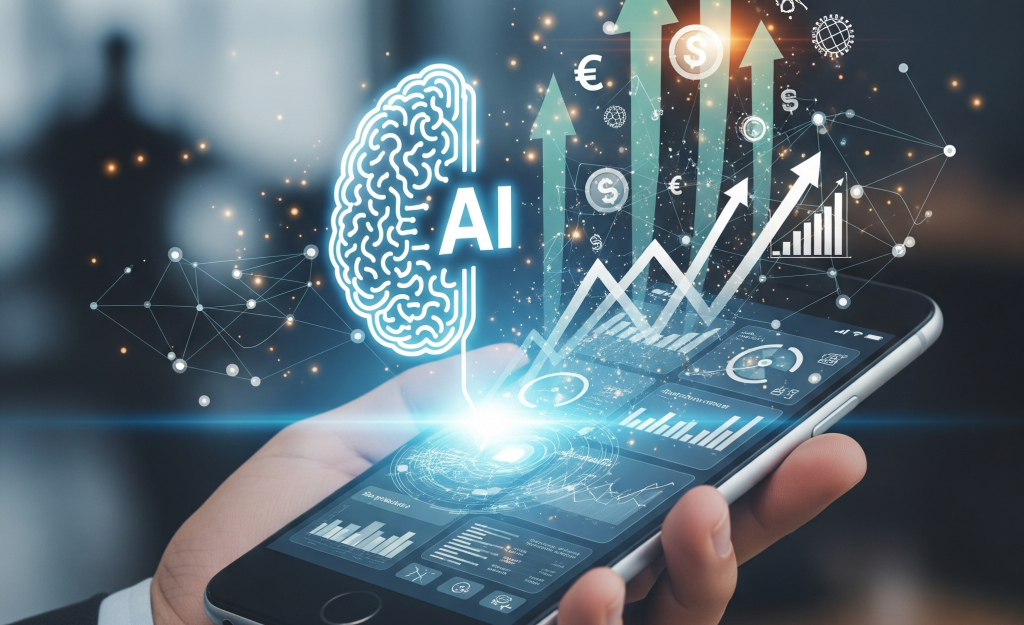
How AI Mobile Apps Are Unlocking Customer Intent and Driving Conversions in Real Time
In today’s fast-paced digital landscape, businesses are racing to deliver personalized, seamless experiences to their customers. Mobile apps, powered by artificial intelligence (AI), are at the forefront of this transformation, revolutionizing how companies understand customer intent and convert interactions into meaningful outcomes. By leveraging real-time data processing, predictive analytics, and adaptive interfaces, AI mobile apps are unlocking customer intent and driving conversions like never before. This blog explores how these apps are reshaping customer engagement and boosting business success.
Understanding Customer Intent in Real Time
Customer intent refers to the underlying motivations or goals driving a user’s actions. Whether it’s browsing products, seeking support, or exploring content, understanding intent allows businesses to tailor experiences that resonate. AI mobile apps excel at this by analyzing vast amounts of data—such as user behavior, search patterns, and contextual cues—in real time.
For instance, AI algorithms can track how users navigate an app, what they click on, and how long they linger on specific features. By combining this with external factors like location, time of day, or even weather, AI creates a dynamic picture of what the user wants. A retail app, for example, might notice a user frequently browsing winter jackets and, based on their location, recommend nearby stores with relevant promotions. This level of personalization feels intuitive and drives engagement by aligning with the user’s immediate needs.
The Role of AI in Personalizing User Experiences
Personalization is no longer a luxury—it’s an expectation. AI mobile apps use machine learning models to deliver hyper-relevant content and recommendations. Unlike traditional apps that rely on static rules or manual segmentation, AI-driven apps continuously learn from user interactions to refine their understanding of preferences.
Take streaming services as an example. Apps like Netflix or Spotify use AI to analyze viewing or listening habits, recommending content that aligns with a user’s tastes. These recommendations evolve in real time as users interact, ensuring suggestions remain relevant. In e-commerce, AI apps can suggest products based on past purchases, browsing history, or even items other similar users have bought. This tailored approach not only enhances user satisfaction but also increases the likelihood of conversions by presenting the right offer at the right moment.
Real-Time Decision-Making and Predictive Analytics
One of the standout features of AI mobile apps is their ability to make decisions in real time. Predictive analytics, powered by AI, allows apps to anticipate user needs before they’re explicitly stated. By analyzing historical and real-time data, these apps can predict what a user is likely to do next and proactively guide them toward a desired action.
For example, a fitness app might notice a user’s workout frequency dropping and send a personalized push notification with a motivational message or a tailored workout plan. Similarly, a food delivery app could predict when a user is likely to order based on past behavior and offer a time-sensitive discount to nudge them toward completing the purchase. These proactive interventions reduce friction in the customer journey and drive conversions by capitalizing on intent at the optimal moment.
Enhancing Customer Support with AI Chatbots
AI-powered chatbots embedded in mobile apps are transforming customer support by providing instant, 24/7 assistance. These chatbots use natural language processing (NLP) to understand user queries and respond with relevant solutions. By resolving issues quickly, they improve user satisfaction and keep customers engaged with the app.
For instance, a banking app with an AI chatbot can help users check account balances, dispute transactions, or apply for loans without needing to speak to a human agent. By addressing queries in real time, these chatbots reduce drop-off rates and guide users toward completing high-value actions, such as signing up for a new service or making a purchase. The ability to handle complex interactions with a conversational tone makes these chatbots a powerful tool for driving conversions.
Optimizing User Interfaces for Seamless Experiences
AI mobile apps don’t just analyze data—they adapt interfaces dynamically to suit individual users. Adaptive UI/UX design uses AI to rearrange app layouts, highlight relevant features, or simplify navigation based on user behavior. For example, an e-commerce app might prioritize the “Buy Now” button for users who frequently make quick purchases while offering more product details to those who tend to browse extensively.
This adaptability ensures users can accomplish their goals with minimal effort, reducing frustration and increasing the likelihood of conversion. By streamlining the path to purchase or engagement, AI-driven interfaces create a frictionless experience that feels uniquely tailored to each user.
Driving Conversions with Real-Time Insights
The ultimate goal of understanding customer intent is to drive conversions—whether that’s a purchase, a sign-up, or another key action. AI mobile apps excel at this by combining real-time insights with actionable strategies. For instance, AI can identify users who are at risk of abandoning their carts and trigger personalized offers, such as discounts or free shipping, to incentivize completion. Similarly, apps can use A/B testing powered by AI to determine which prompts or designs yield the highest conversion rates, optimizing performance on the fly.
A notable example is how travel apps use AI to offer dynamic pricing or curated travel packages based on user preferences and market trends. By presenting the right offer at the right time, these apps increase the chances of users booking flights or accommodations directly through the app.
Ethical Considerations and Building Trust
While AI mobile apps offer immense potential, businesses must prioritize ethical use of data to maintain user trust. Transparent data practices, such as clear privacy policies and opt-in consent for data collection, are critical. AI apps should also avoid overly intrusive personalization, which can feel invasive and deter users. By balancing personalization with respect for privacy, businesses can foster long-term loyalty and drive sustainable conversions.
The Future of AI Mobile Apps
As AI technology continues to evolve, its impact on mobile apps will only grow. Advances in generative AI, voice recognition, and augmented reality will enable even more sophisticated ways to understand and act on customer intent. For example, voice-activated apps could use AI to interpret tone and context, offering responses that feel more human. Similarly, AR-powered shopping apps could let users visualize products in their homes, driving confidence in purchase decisions.
Conclusion
AI mobile apps are redefining how businesses connect with customers by unlocking intent and driving conversions in real time. Through personalized recommendations, predictive analytics, adaptive interfaces, and responsive chatbots, these apps create seamless, engaging experiences that align with user needs. As businesses continue to harness AI’s potential, the ability to deliver the right message, at the right time, to the right user will become the cornerstone of mobile success. By embracing this technology responsibly, companies can not only boost conversions but also build lasting relationships with their customers.
